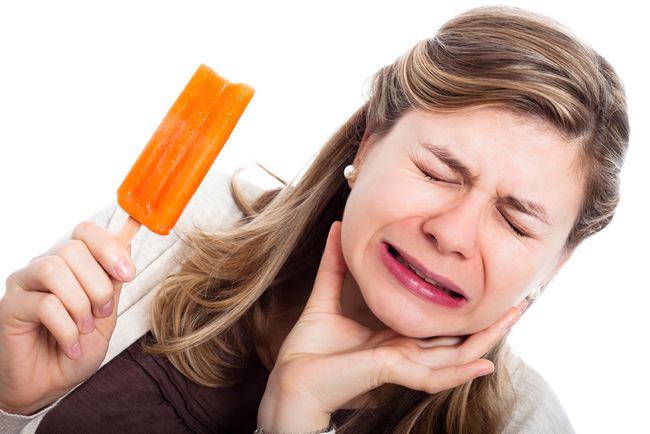If you are wincing when eating a frozen yoghurt, when brushing or flossing your teeth, you could have tooth sensitivity.
There many reasons as to why this tooth sensitivity may arise. We will discuss here why is it happening and what can we do to ease the sensitivity pain.
Brushing with too much force may result in wearing off the enamel of the teeth and expose the dental canals that lead to the nerves in the teeth. This can cause a discomfort when drinking hot or cold drinks. The simplest solution would be to opt for a softer brush. If you feel the tooth brush you are using now is too rigid, consider switching to a ‘gentler’ option.
Acidic food such as citruses and pickles can attack protective layer of the teeth and break through if your nerves are exposed. Stick to the food that is not causing you pain and follow the basic oral hygiene guidelines.
Grinding your teeth is also known to wear of the protective layer of the teeth. Your dentist can help you finding the right mouth guard for you. The guards can be custom made to perfectly fit your mouth.
Some toothpaste, particularly those with whitening effects may contain chemicals your teeth can be more sensitive to. In this case switching toothpastes will help. The same goes for mouthwash, some of rinse products contain alcohol and chemicals that could again make your teeth more sensitive.
The plaque forms and builds-up on your teeth surface after you eat. The excessive amount of plaque on the teeth is known to damage the enamel. Brushing, flossing, general daily dental care and regular dental checkups are advised.
Receding gums can also be the cause of tooth sensitivity. Your dentist can suggest a gum disease or gingivitis treatment procedures. Other tooth sensitivity causes that would require immediate attention from a dentist would be cracked tooth or visible tooth decay.
Specially made toothpaste has helped a lot of people to tackle tooth sensitivity problem. However, not everyone found them helpful. Only a dental office visit can determine the exact causes of your tooth sensitivity problem and the best treatment solution.
